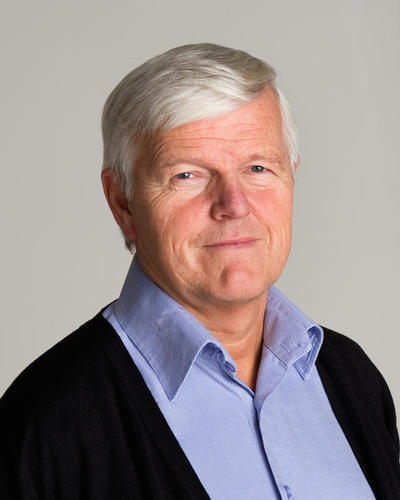Being young during the coronavirus lockdown
The social needs of people are almost in line with the needs of food and drink. We are totally dependent on human contact. Young people maybe more than others.

Main content
All people are social beings and, in our contact, we are usually very physical, with some cultural variations. We greet each other, touch, and hold each other and hug and kiss. Our social needs are partially met through physical contact and we often want proximity and not distance. Now, the two-meter rule applies and preferably no physical contact beyond one's own family. Although the lockdown of society is gradually abolished, still limited contact is desirable. Many continue to be afraid of infection.
Establishing social competence
In children’s development towards adulthood where they will interact with a partner, with their family, with friends and work colleagues, the youth period constitutes a very important period for the establishment of social competence. From the age of 10, children are increasingly orienting themselves towards friends. This is part of their autonomy process where they gradually detach themselves from parents. They seek towards friends; they hang out together in groups and are confirmed by their peers. Their self-esteem and value are determined in their interaction with friends and peers. They are very sensitive to social signals and exclusion. Their development depends on the interaction with other young people. It is during this period that they develop much of the expertise they later need for interaction with a partner, their own family, friends, and in work and social life. Their independence from parents is facilitated through more time spent with friends, and less with parents.
In comes the coronavirus that not only slows down, but partly stops the physical contact with large parts of their networks. We do not know the effect this will have over time. This will of course depend on how severe and long the lockdown will last. We can only speculate how much this will impact young people over time.
Important to restore social arenas
Young people operate on many digital surfaces. Some like passive recipients where they take in news and scroll web pages to read about the pandemic, others active in contact with their friends and peers. We do not know how active online social networking can compensate for the physical proximity of the group of friends. However, based on research on young people's social development, there is reason to believe that physical contact cannot be fully compensated. The social signals that are present by physical presence and which help to understand and process what happens in a group are disseminated only to a small extent through video calls.
In many ways, it is even more important for young people to regain social arenas and be able to meet physically, than it is for kindergarten children to return to kindergarten or for the children in the first school grades to get started again. The youth group needs the opportunity to meet again because their social development and independence are dependent on this. Adolescence is considered to last up to 24 years! The coronavirus has meant that many young people have moved back to their parents' home because higher education, colleges and universities are closed or that teaching is only conducted digitally. Young people’s independence process has been blocked and they have, in a sense, moved back to start.
Compliance with government regulations
The social needs of people are almost in line with the needs of food and drink. We are totally dependent on human contact. Young people maybe more than others. We are now entering a time of more heat, sun and holidays. Ending school usually means time and contact with the peer group. With lockdown or partial lockdown many do not know what to expect, they do not know what the near future will bring. There is reason to expect that we have to steel us for 'civil disobedience' unless restrictions on being together are relaxed. Young people reach a limit of isolation. They will seek out their peers and gather in groups to have fun. Many will not comply or live up to the authorities' wishes to primarily be with the family or meet in small groups outside with distance. Without easing up on the contact restrictions and letting schools open again for young people, many will act contrary to what the larger community wants. They will meet in hiding or openly break what is desired. If, for the sake of contagion, we want to continue with contact restrictions as now, we must identify the barriers to compliance that exist among the young. How can we work to sustain physical distancing over time as 'coronary fatigue' begins? These are issues that the health care system and our political leadership must address.
